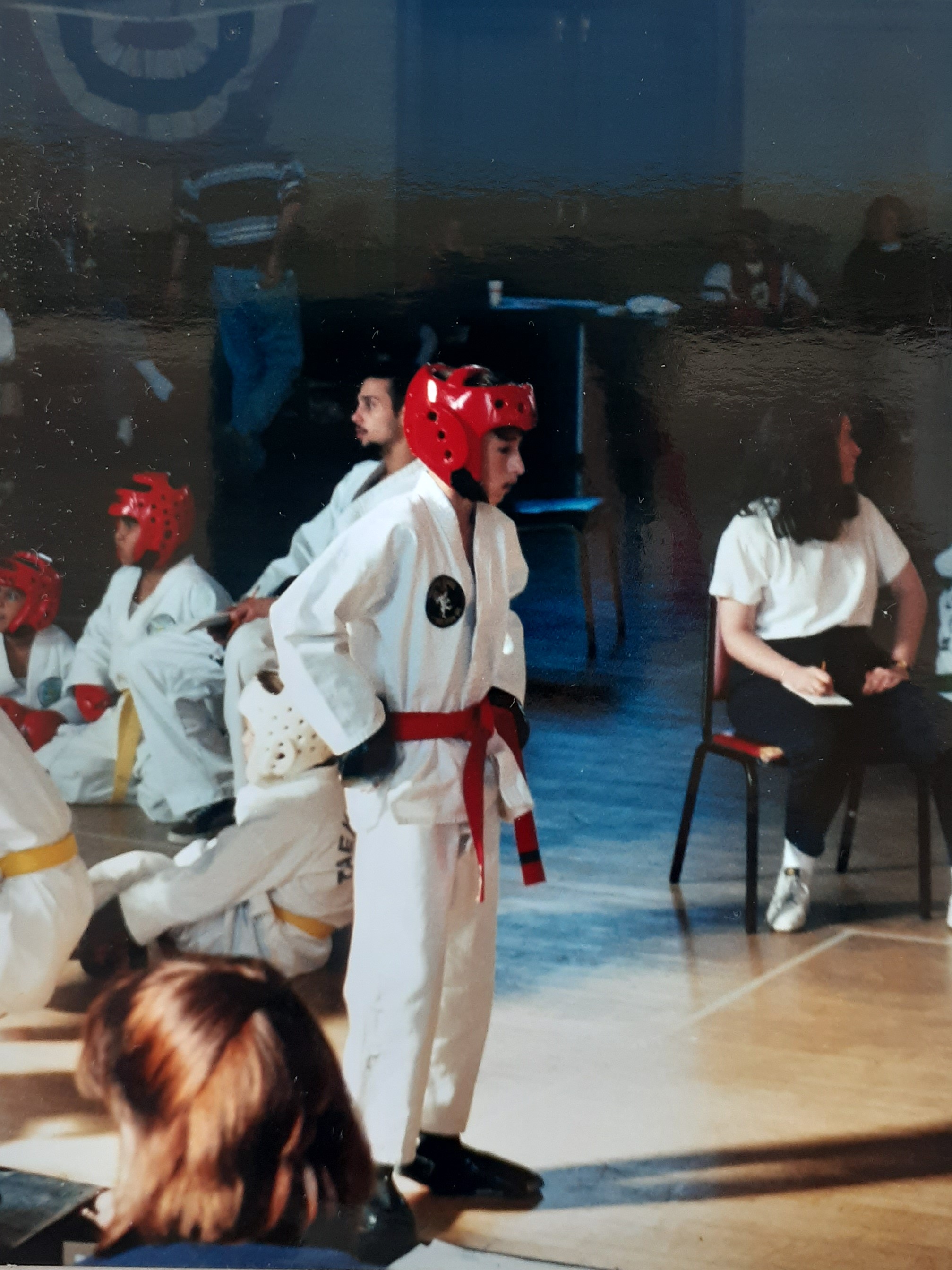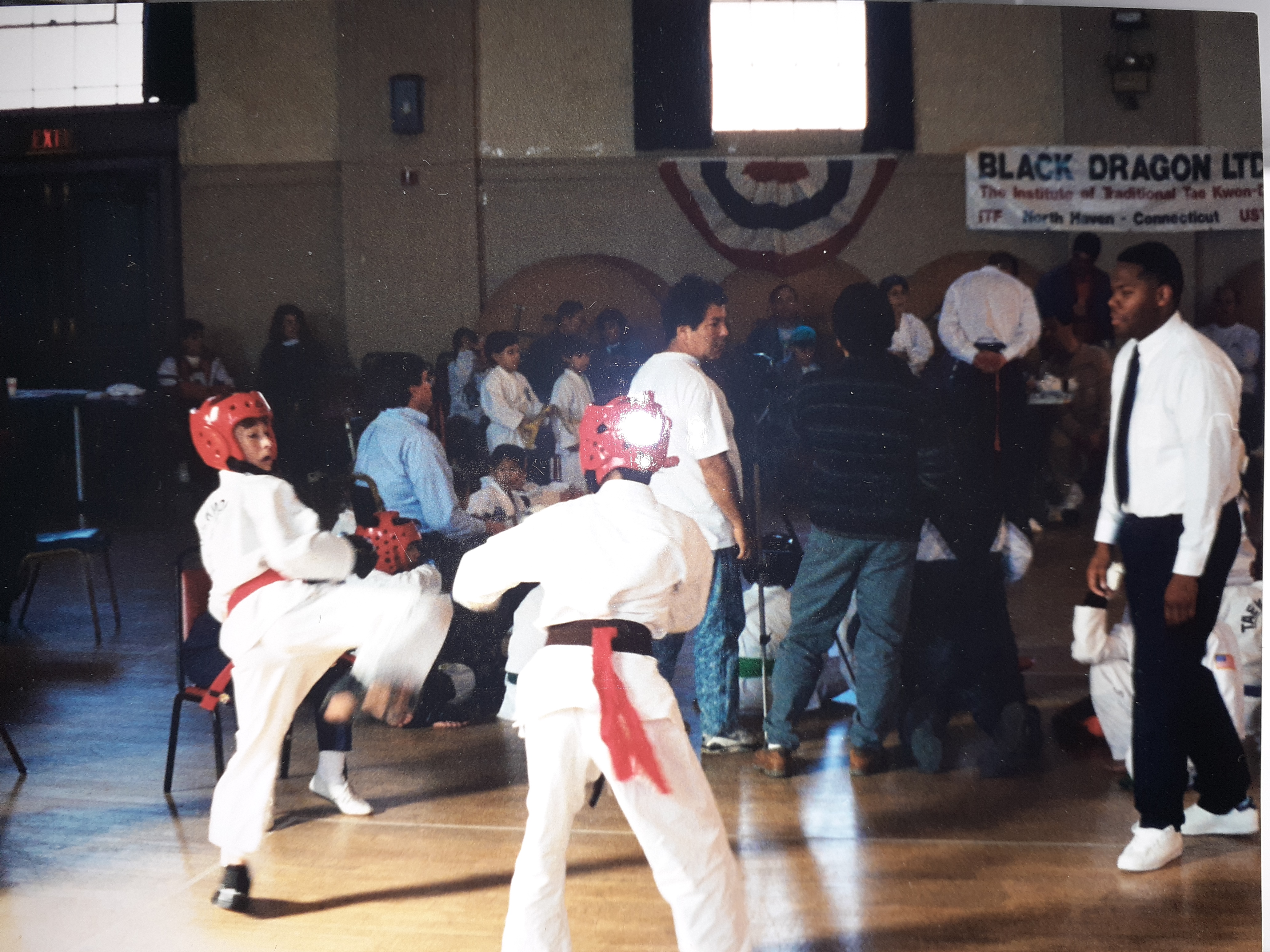I started training in International TAE KWON-DO when I was 6. My first dojang was the cafeteria of my middle school in Connecticut. Before the start of each class our instructor would recite the student oath and tenets of TAE KWON-DO: “Repeat after me: ‘Observe the tenets of TAE KWON-DO, respect all seniors and instructors, never misuse TAE KWON-DO, be a champion of freedom and justice, and help to build a more peaceful world.”
This was followed by a recitation of the tenets of TAE KWON-DO:
Courtesy: to respect others.
Perseverance: to never, ever give up – “Patience leads to virtue or merit.”
Self-control: to control yourself always.
Indomitable spirit: a spirit that cannot be broken.
This became a framework for my life lessons in discipline, and would prepare me for a life in martial arts and a life in the Marine Corps.

Once a night, three to four times a week, from the ages of six to eighteen, a code of conduct was being embedded, ritualized, and reflected on. Through my teens, my confidence would grow with acceleration from my martial arts training. School performance improved. Relationships blossomed with peers and adults. A level of professionalism was being cemented. I developed a sense of life with discipline to complement the moral compass my mother and father had instilled and reinforced.

I made a commitment when I arrived at the United States Marine Corps boot camp, at Parris Island. My newly formed life lens seemed advantageous over others who were overwhelmed with the chaos of the moment. I respected and innately understood the psychologies behind the ritualized and consistent behaviors, the forced, repetitive rehearsals in training. Some tasks would not be appreciated until muscle memory was called upon later on. The benefits and rewards of preparing for the unexpected were real, defined, with the goal to perform in the most difficult of circumstances. I understood the definition of indomitable spirit after all those years of reciting, what was required of the United States Marines, what was required of me. It was an obligation.
Looking back at my earliest days of martial arts, I see it provided me with a healthy level of competition and callusing of my mind. There were no “participation trophies.” If there was any deviation from student oath or tenets, a punishment was warranted, a correction received. Students would have to duck walk around the perimeter of that cafeteria. At those young ages we did not realize the benefits of that punishment, until many years later.


